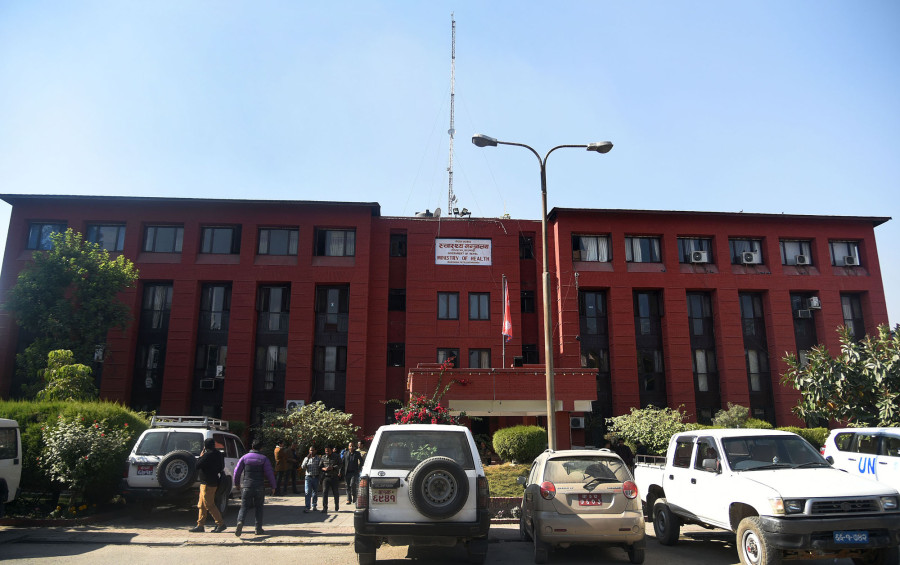Health
Health Ministry to follow WHO's revised deadline to eliminate measles, rubella virus
The World Health Organization South-East Asia Region revised measles elimination deadline in the region to 2023.
Arjun Poudel
With all its efforts failing to eliminate local infections from measles and rubella viruses, the Ministry of Health and Population has decided to follow the World Health Organization South-East Asia Region's revised deadline.
The UN's health agency has extended its deadline to 2023, after its member states failed to prevent death and disabilities caused by the highly infectious killer viruses, which afflicts mostly children in their early childhood.
"We have not declared our own deadline. We will follow WHO's revised deadline of 2023 to eliminate the deadly diseases," said Dr Jhalak Sharma, chief of immunisation section at the Family Welfare Division under the Department of Health Services. "We will make additional efforts to meet the targets."
Earlier, the Health Ministry had decided to eliminate the viruses by 2019, a year before the WHO South-East Asia Region's deadline of 2020.
Measles is a contagious viral disease that can be prevented with a two-dose vaccine, which has to be first administered at nine months of age and then at 15 months. The government provides measles’ vaccines for free at health facilities across the country.
Measles’ elimination and rubella control is a regional flagship priority of the WHO since 2014. According to the WHO, Bhutan, Democratic People's Republic of Korea, Maldives, Sri Lanka and Timor-Leste have already eliminated the measles virus. Six countries—Bangladesh, Bhutan, Maldives, Nepal, Sri Lanka and Timor-Leste—have controlled the infection from rubella virus.
To achieve measles eliminated status, the number of cases should be less than five in every 1,000,000 population or no cases throughout the year. Sharma said that his office would work to increase the coverage of the second dose of measles vaccines, which is very low, compared to the first dose.
"We will also continue the nationwide anti-measles, rubella drive to lessen the risk of the frequent outbreak of the deadly viruses," said Sharma. "We will also improve our preparedness level to respond to outbreaks and also coordinate with all concerned stakeholders, including provincial and local level governments, political parties, and international partners including the UN bodies—WHO and UNICEF—to achieve the desired result."
The immunisation section has planned to launch nation-wide campaigns against measles and rubella virus from February to April in two phases next year. The first phase of the campaign will start on February 13, 2020, and will continue until March 13 in provinces 1, 2 and 5. The second phase will be conducted from March 14 to April 14 in provinces 3, 4, 6 and 7. During the campaign, all children aged between 9 months to 59 months old will be immunised with vaccines against measles and rubella virus.
Measles and rubella are contagious viral diseases, which are transmitted through droplets from the nose, mouth or throat of infected persons. Early symptoms, which usually appear 10-12 days after infection include high fever, runny nose, bloodshot eyes and white tiny spots inside the mouth. Several days later, a rash develops on the face, upper neck and other parts of the body.
Doctors say people of all age groups are vulnerable to the disease and underage children, pregnant women, elderly people and those with compromised immune systems such as HIV-infected people, are highly vulnerable.
Some people may suffer from severe complications, such as pneumonia and encephalitis, and these diseases may also lead to death.
Measles was endemic in Nepal and an average of 90,000 cases were recorded every year from 1994 to 2004. Routine measles vaccination began in the country in 1979, starting with three districts. The campaign was extended nationwide after 10 years.




 9.83°C Kathmandu
9.83°C Kathmandu















